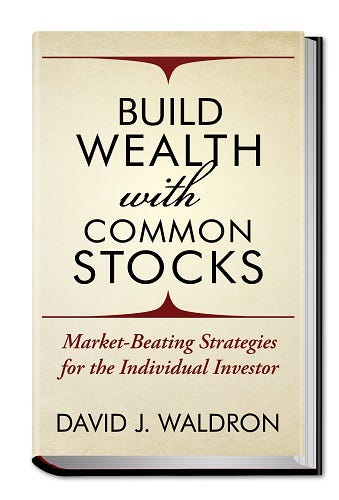
Summary
Despite a pandemic, inflation, and fears of recession, off-price retailer TJX continues its legacy with an impressionable value proposition.
Since QVI’s initial coverage in 2017, fundamentals remain solid, and downside risks are still below average, thanks to TJX’s outstanding returns on equity and capital, and debt coverage.
However, shareholder yields underperform the 10-Year Treasury, and valuation multiples suggest a premium-priced stock.
Nevertheless, the bulls appear to outnumber the bears, including a near-zero short interest.
TJX is a prime example of a high-quality business model trading at a premium stock price, as should be expected.
Premium (paying) subscribers: When referencing this research report, access your Quality Value Investing (QVI) Glossary of Investing Terms and Metric Targets. Unless noted, all data presented is sourced from Seeking Alpha Premium as of the market close on April 18, 2023, and intended for illustration only.
The TJX Companies Value Proposition
QVI Research Report’s value proposition section provides a brief synopsis of the company’s business model, major-exchange listing, stock symbol, market capitalization, and dividend-paying status. In addition, it defines the competitive advantages of a company’s products or services to its customers compared to the industry, including the stock’s historical performance vs. the sector and market.
The TJX Companies, Inc. (NYSE: TJX) is a dividend-paying large-cap stock in the consumer discretionary sector’s apparel and specialty retail industry. TJX was added to the QVI Concentrated Portfolio on May 23, 2017, at a split and dividend-adjusted $34.28 a share.
The TJX Companies, Inc., together with its subsidiaries, operates as an off-price apparel and home fashions retailer in the United States, Canada, Europe, and Australia. It operates through four segments: Marmaxx, HomeGoods, TJX Canada, and TJX International. The company sells family apparel, including footwear and accessories; home fashions, such as home basics, furniture, rugs, lighting products, giftware, soft home products, decorative accessories, tabletop, and cookware, as well as expanded pet, kids, and gourmet food departments; jewelry and accessories; and other merchandise. The TJX Companies was incorporated in 1962 and is headquartered in Framingham, Massachusetts, USA.
QVI’s value proposition elevator pitch for The TJX Companies:
TJX resides in our concentrated family portfolio based on its global powerhouse buyer network, superior inventory management, and consistent financial performance.
Performance vs. Sector and Market
The chart below illustrates TJX’s performance against the Consumer Discretionary Select Sector SPDR® Fund ETF (NYSE: XLY) and the SPDR® S&P 500 ETF Trust (NYSE: SPY) since QVI’s initial coverage of The TJX Companies in May 2017.
For example, TJX has outperformed its sector and the broader market in total returns during the coverage timeframe. Notably, the stock is up nearly 25% over the past year from dividend raises, positive earnings reports, and investor sentiment that believes its value merchandise business model will do well during inflationary or recessionary cycles.
Due Diligence Resources
For a more in-depth analysis of the all-important value proposition, visit The TJX Companies’ investor relations webpage and its most recent Form 10-K Annual Report submitted to the U.S. Securities and Exchange Commission or SEC.
QVI’s value proposition rating for The TJX Companies: Bullish.
TJX Total Return vs. XLY and SPY
TJX Companies Inc (TJX) Total Return: 126.40%
Consumer Discet Sel Sect SPDR ETF (XLY) Total Return: 76.66%
SPDR S&P 500 ETF Trust (SPY) Total Return: 91.48%
Since May 23, 2017 (as of April 18, 2023)TJX Shareholder Yields
QVI Research Report’s shareholder yields section uncovers the equity bond rate of the company’s common shares. It aims to quantify the yields on earnings, free cash flow, and dividends to measure how the targeted stock compares to the prevailing yield on the 10-Year Treasury benchmark note.
Earnings and Free Cash Flow Yields
TJX’s earnings yield traded below the targeted floor at 3.83%, as demonstrated in the below chart. Moreover, at 2.87%, TJX’s free cash flow yield traded far under the threshold.
As inverse valuation multiples, the earnings and free cash flow yields suggest that TJX trades at a premium. QVI will further explore valuation multiples later in this report.
Dividend Yield
The TJX Companies offers a modest forward dividend yield of 1.52%, supported by a 37.22% payout ratio, thus indicating a safe dividend rate with room for additional annual increases.
TJX yielded 3.88% from an annual payout of $1.33 on a split- and dividend-adjusted cost basis of $34.28 per share on May 23, 2017, the date of QVI’s initial stock coverage. Thus, our yield-on-cost basis was +236 basis points (bps) above the forward yield.
Average of Shareholder Yields
Quality Value Investing takes the average of the three shareholder yields to measure how the stock compares to the prevailing yield of 3.57% on the 10-Year Treasury benchmark note. For example, the average shareholder yield for TJX was 2.74% or -83 bps below the 10-Year and 3.53% or -4 bps below the Treasury yield when using QVI’s May 2023 yield-on-cost basis.
QVI’s shareholder yields rating for TJX: Neutral.
TJX Shareholder Yields
TJX Companies Inc (TJX) Price: $77.77
TJX Companies Inc (TJX) Earnings Yield: 3.83%
TJX Companies Inc (TJX) Free Cash Flow Yield: 2.87%
TJX Companies Inc (TJX) Dividend Yield: 1.52%
One-Year Trailing (as of April 18, 2023) The TJX Companies Fundamentals
QVI Research Report’s fundamentals section measures the performance strength of the company’s senior management by analyzing revenue growth, net profit margin, and returns on equity and invested capital.
Revenue Growth and Net Profit Margin
Per the below chart, The TJX Companies had positive three-year annualized revenue growth of 6.18%, underperforming the 10.35% median growth of the consumer discretionary sector.
Further down the income statement, The TJX Companies had a trailing three-year single-digit net profit margin of 5.83%, typical of a retailer; however, it outperformed the sector’s median net margin of 4.50%.
Returns on Equity and Invested Capital
The TJX Companies’ management produced a trailing three-year return on equity or ROE of 43.89%, tripling the targeted threshold and trouncing the sector’s median ROE of 11.79%.
Stock buyback programs often elevate ROE. Notably, on February 22, The TJX Companies’ board of directors authorized stock buybacks of between $2.0 and $2.5 billion during fiscal 2024.
At 23.45%, The TJX Companies’ three-year return on invested capital, or ROIC, is well above the QVI threshold and far outperforming the sector’s median ROIC of 6.35%, indicating that its senior executives are superior capital allocators.
In addition, The TJX Companies’ ROIC triples its weighted average cost of capital, or WACC, of 7.67%. (Source of WACC: GuruFocus).
Despite modest revenue growth and single-digit profit margins typical of a retailer, the robust returns on equity and invested capital suggest that The TJX Companies’ management continues its legacy of 2nd level performance in Framingham.
QVI’s fundamentals rating for The TJX Companies: Bullish.
TJX Returns on Management
TJX Companies Inc (TJX) Revenue Growth (3y Annualized): 6.18%
TJX Companies Inc (TJX) Profit Margin (3y Median): 5.83%
TJX Companies Inc (TJX) Return on Equity (3y Median): 43.89%
TJX Companies Inc (TJX) Return on Invested Capital (3y Median): 23.45%
Three-Year Trailing (as of April 18, 2023)TJX Valuation, Risks, and Investment Thesis
Next, QVI dives into the valuation multiples, downside risks, and overall investment thesis of The TJX Companies, Inc. (TJX), including potential catalysts. So let’s dig further after reading the required disclosures and background information.
Disclosure: I/we have a beneficial long position through direct ownership of TJX common shares in our family portfolio. I wrote this post myself, and it expresses my own opinions. I am not receiving compensation for it other than from Substack paid subscriptions. I have no business relationship with any company whose stock is mentioned in this article.
Additional disclosure: Quality Value Investing by David J. Waldron’s primary ticker research reports are for informational purposes only. The accuracy of the data cannot be guaranteed. Narrative and analytics are impersonal, i.e., not tailored to individual needs nor intended for portfolio construction beyond his family portfolio, which is presented solely for educational purposes. David is an individual investor and author, not an investment adviser. Readers should always engage in their own research or due diligence and consider (as appropriate) consulting a fee-only certified financial planner, licensed discount broker/dealer, flat fee registered investment adviser, certified public accountant, or specialized attorney before making any investment, income tax, or estate planning decisions.
About the Writer
David J. Waldron is contributing editor of Quality Value Investing and author of the international-selling book, Build Wealth with Common Stocks: Market-Beating Strategies for the Individual Investor. David’s mission is to inspire the achievement of his readers’ financial goals and dreams. He received a Bachelor of Science in business studies as a Garden State Scholar at Stockton University and completed The Practice of Management Program at Brown University. David and his wife, Suzan, reside in historic South Central Pennsylvania, USA.
Preview David’s Book
Readers can preview Build Wealth with Common Stocks here: https://davidjwaldron.com/build-wealth-with-common-stocks.html, including links to over 25 online booksellers worldwide.
Bonus: Founding Members of QVI on Substack are eligible to receive an author-personalized complimentary copy of the case laminate hardcover edition of the book.
Keep reading with a 7-day free trial
Subscribe to Quality Value Investing to keep reading this post and get 7 days of free access to the full post archives.





